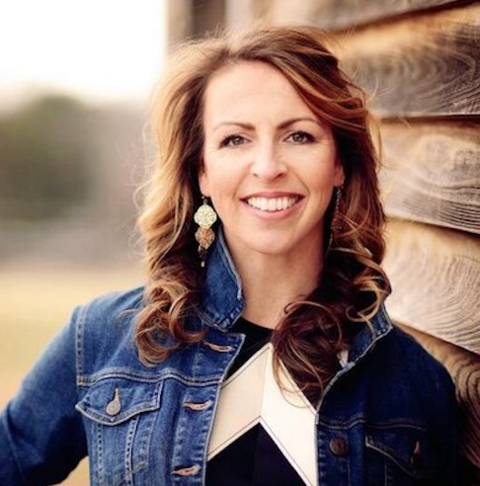FALLS CHURCH, Va.— The hallways of Inova Health System's newest inpatient mental health unit gleam white and new.
With all private patient rooms, they look very much the style of patient rooms popping up in brand new hospital towers around this region of the country. And despite safety design features—such as hidden sensors to help monitor patients at risk for self-harm and doors that are built to be barricade-proof—that is what Inova hopes patients will see in the newly renovated unit.
"Three years ago, we embarked on this journey to increase behavioral health beds with the knowledge that we really needed to find more specialized care for our patients outside of a general psychiatric population. We do that with any other type of illness," said Michelle Mullany, Inova's assistant vice president of behavioral health.

(Inova Health System)
Later this month, the hospital will open that behavioral health inpatient unit with one floor dedicated to adolescents and another for adults.
They join a growing number of hospitals around the country that are adding or growing such units after years of efforts to deinstitutionalize mental health care led to shortages of inpatient behavioral health beds.
Children's Hospital of Richmond at Virginia Commonwealth University recently redesigned its behavioral health center, boosting its inpatient bed count from 24 to 32 beds. San Francisco just opened a 54-bed inpatient facility, Mercy Medical Center recently announced plans to build a proposed 100-bed psychiatric hospital in Iowa and multiple psychiatric hospital projects have already been built or are underway in Massachusetts and New Jersey.
RELATED: Lessons from a payer-led behavioral health home model
The creation of these specialized units makes sense because many of the patients with severe and persistent mental illness have co-occurring health conditions or present suicide risks that are landing them in inpatient units anyway, said Doug Tynan, the director for the American Psychological Association Center for Psychology and Health.
"I think some of the hospitals are finally realizing let’s just create the units that best suit these patients," Tynan said. "They are looking at the patient population, more people have insurance now, there is now health parity and I think hospitals in a particular location look at their catchment and say, 'What is our best setup for the patients we're going to have coming in the front door?"
The creation of the Inova unit driven by a growth in needs with reports of increases in suicides and other "deaths of despair" related to drugs and alcohol, as well as poor outcomes for patients with mental health concerns, Mullany said.
"We get the meds wrong, we don't necessarily give enough time to see how the trajectory of the improvement is on those medications, we discharge folks," Mullany said about mental health care in general in the U.S. "Having an increase in beds will help us prevent the readmissions and really get that treatment right from the beginning."
RELATED: How outpatient and inpatient mental health providers can work better together

health unit. (Inova Health System)
Inova’s unit, which will have all private patient rooms, will offer patients individual bathrooms, large windows that allow natural light and open areas such as shared dining space and group therapy rooms. In all, they will have 15 adolescent inpatient beds, 14 mood disorder unit beds, 12 medical and geriatric psychiatry unit beds and 12 acute care psychiatry beds. It will also have 25 Comprehensive Addiction Treatment Services beds. They are careful to point out this is part of a comprehensive suite of services that include outpatient services.
Inova said it will accept all appropriate patients regardless of which insurance they have. Mullany said she expects Medicaid expansion in Virginia will significantly help provide patients better access and improve Inova's financial considerations when it comes to providing care to all comers.
But there are still significant reimbursement challenges Inova and other hospitals have to overcome to provide specialized inpatient behavioral health care as part of their overall mental health services continuum.
"Many hospitals will negotiate contracts with companies that provide higher reimbursement for high ticket items. Cancer. Transplant. Heart attacks. And they will take a lower rate for behavioral health in favor of bigger reimbursement for those other diagnoses," Mullany said. "That's not a criticism of the health system. That's good fiduciary responsibility. But as a result, we sometimes see the rates of reimbursement are lagging behind."
Further, to meet the demand among patients, she said health systems need to be able to make better use of midlevel providers such as social workers and counselors because the Centers for Medicare and Medicaid Services doesn't reimburse for them in a hospital setting.
"If a patient comes into the hospital, the only person who can bill for services is a doctor and a psychologist," Mullany said. "But 90% of mental health treatment is done by social workers and counselors who are billable and reimbursable—it's just in the hospital they are not allowed to do that.
She ultimately wants to see a shift where mental health care is viewed—and paid for—the same as other health services.
"Essentially, what we're saying to patients is 'You're different. This is a different diagnosis. It may or may not need the treatment that we think you need,'" Mullany said. "If you're having a heart attack, no one is sitting around saying that. I think we have a lot of work to do there."
Investments in inpatient units, such as Inova's, are a step toward changing that, she said.